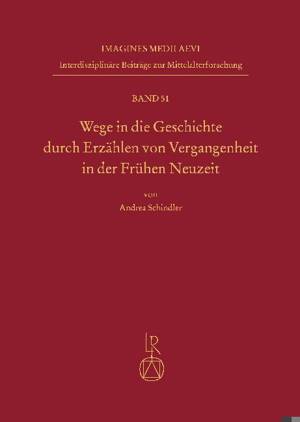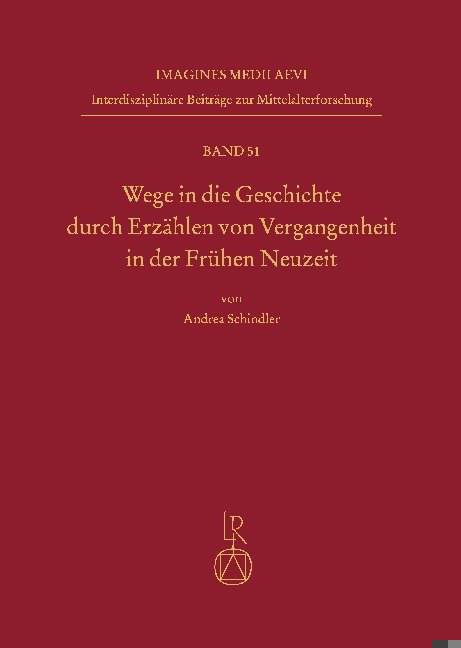
En raison d'une grêve chez bpost, votre commande pourrait être retardée. Vous avez besoin d’un livre rapidement ? Nos magasins vous accueillent à bras ouverts !
- Retrait gratuit dans votre magasin Club
- 7.000.000 titres dans notre catalogue
- Payer en toute sécurité
- Toujours un magasin près de chez vous
En raison de la grêve chez bpost, votre commande pourrait être retardée. Vous avez besoin d’un livre rapidement ? Nos magasins vous accueillent à bras ouverts !
- Retrait gratuit dans votre magasin Club
- 7.000.0000 titres dans notre catalogue
- Payer en toute sécurité
- Toujours un magasin près de chez vous
Wege in Die Geschichte Durch Erzahlen Von Vergangenheit in Der Fruhen Neuzeit
Andrea Schindler
Livre relié | Allemand | Imagines Medii Aevi. Interdisziplinäre Beiträge zur Mittelalterforschung | n° 51
103,45 €
+ 206 points
Description
The Early Modern Period is considered a time of upheaval and new beginnings; the memory of the past and the preoccupation with history in this period therefore offer an exciting object of investigation. On that basis can be analysed whether the past is actually perceived as something to be overcome for this 'modern period', how history is retold and also instrumentalised. Three works from the 16th century, each combining history and stories in its own way, will be examined: the Historia of Friedrich Barbarossa (first print 1519), the Barbarossa Vita by Johannes Adelphus Muling (first print 1520) and the didactic poem Thedel von Wallmoden by Georg Thym (first print 1558). The analysis shows that in various genre and creation contexts, depending on the particular present, literary sources and texts, historical persons and events are assembled, synchronized and classified as 'true', either consciously or unconsciously neglecting the chronological truth of facts. One aim of this is to construct a glorious past for a family (Thedel von Wallmoden) or for a 'national' group (Barbarossa) or to instrumentalise the history thus constructed didactically, whereby the relationship between 'fact' and 'fiction' is quite different in each case. The High Middle Ages (12th century), which are stylised as a kind of Golden Age, are used in this context. Thus, in the 16th century, the past - the Middle Ages - is not conceived as a closed 'pre-time', but the present is understood as a linear continuation of the past; the authors do not pursue medievalism in the contemporary sense. The mythogenetic process (P. Burke) - the detachment of the narrative from history - has in some cases already progressed so far that 'memory implants' (J. Fried) are also created, i.e. the narratives of events not actually having happened, but which find their way into history, are integrated and perceived as 'true' in historiography. A central part of the postdoctoral thesis are the new critical editions of the Historia of Friedrich Barbarossa and Georg Thyms Thedel von Wallmoden, which after the editions of the 19th century are thus made accessible for the first time, taking into account all the surviving printed works.
Spécifications
Parties prenantes
- Auteur(s) :
- Editeur:
Contenu
- Nombre de pages :
- 396
- Langue:
- Allemand
- Collection :
- Tome:
- n° 51
Caractéristiques
- EAN:
- 9783954904327
- Date de parution :
- 01-09-20
- Format:
- Livre relié
- Format numérique:
- Genaaid
- Dimensions :
- 179 mm x 28 mm
- Poids :
- 439 g

Les avis
Nous publions uniquement les avis qui respectent les conditions requises. Consultez nos conditions pour les avis.






